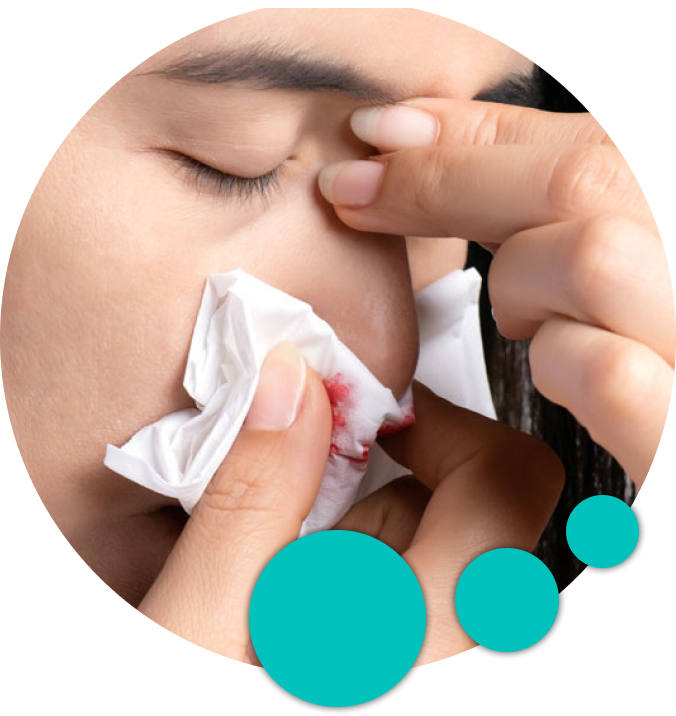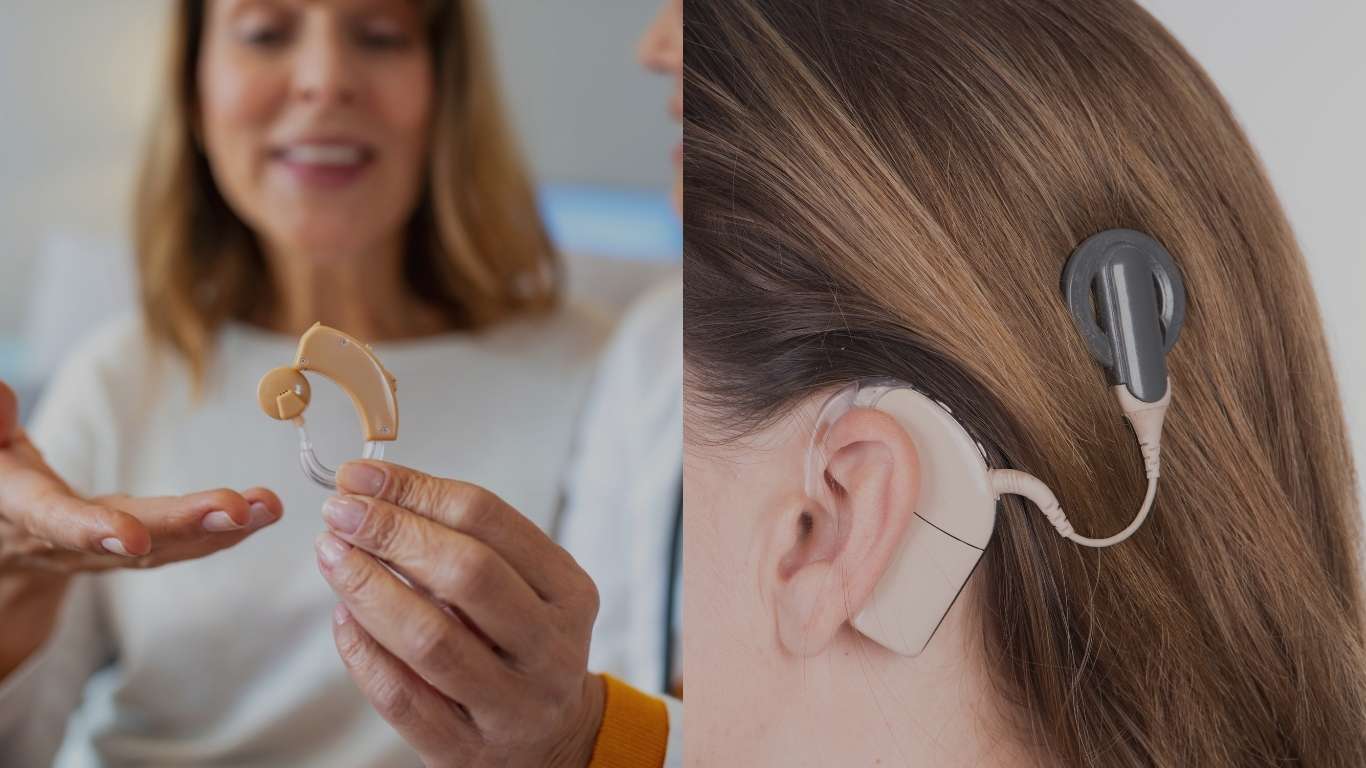Ask the Specialists
Nasal Bleeding

Nasal bleeding, or epistaxis, is the loss of blood from the tissue lining the nose. It can occur spontaneously or due to trauma, dry air, allergies, or underlying health issues. Symptoms may include blood flowing from one or both nostrils and may be accompanied by a feeling of congestion or pressure.
Diagnosis and Treatment
Diagnosis and Treatment for Nasal Bleeding
Diagnosis
The diagnosis of nasal bleeding begins with a thorough medical history and physical examination. The healthcare provider will ask about:
- The frequency and duration of the bleeding episodes.
- Any known underlying medical conditions, such as hypertension or clotting disorders.
- Medications currently being taken, especially blood thinners or anticoagulants.
- Environmental factors, such as exposure to dry air or irritants.
A nasal endoscopy may be performed to examine the nasal passages more closely, allowing the doctor to identify the source of the bleeding.
Treatment
Treatment for nasal bleeding depends on the severity and underlying cause. Common treatment options include:
- Initial Care: For minor bleeds, pinch the nostrils together and lean forward to avoid swallowing blood. Applying ice to the nose can also help.
- Topical Treatments: Moisturizers or saline nasal sprays can be recommended to keep the nasal passages moist and reduce bleeding.
- Cauterization: If a specific blood vessel is identified, cauterization may be performed to seal it and stop the bleeding.
- Packing: In cases of significant bleeding, nasal packing may be used to apply pressure and promote clotting.
- Medications: For those with underlying conditions, medications such as antihistamines or corticosteroids may be prescribed.
If nasal bleeding is recurrent or severe, further investigation may be needed to rule out serious conditions, and more invasive procedures may be necessary.
Preventive Measures
Preventive Measures for Nasal Bleeding
Taking preventive measures can help reduce the frequency and severity of nasal bleeding. Here are some effective strategies:
- Maintain Humidity: Use a humidifier in your home, especially during dry seasons, to keep the air moist and prevent your nasal passages from drying out.
- Avoid Nasal Irritants: Stay away from irritants such as tobacco smoke, strong odors, and chemical fumes, which can aggravate the nasal lining.
- Moisturize the Nasal Passages: Use saline nasal sprays or gels to keep the nasal passages moist, especially in dry environments.
- Gentle Nose Blowing: Be gentle when blowing your nose. Forceful blowing can irritate and damage the blood vessels in the nasal passages.
- Stay Hydrated: Drink plenty of fluids to maintain overall hydration, which can help keep your mucous membranes moist.
- Manage Allergies: Treating allergies with appropriate medications can help reduce nasal inflammation and decrease the risk of bleeding.
- Limit Use of Blood Thinners: If you are on anticoagulants, consult your healthcare provider to ensure you are on the appropriate dosage and to discuss any concerns regarding bleeding.
If you experience frequent nasal bleeding, it is important to consult a healthcare professional to identify any underlying causes and to develop a personalized prevention plan.
Nasal bleeding can be caused by dry air, allergies, nasal infections, or injuries. Other causes include medications that affect blood clotting, high blood pressure, and structural issues in the nose.
To stop a nosebleed at home, sit upright, lean forward slightly, and pinch the nostrils together for 10-15 minutes. Avoid lying down and do not tilt your head back.
You should see a doctor if you experience frequent nosebleeds, if a nosebleed lasts longer than 20 minutes, or if it occurs after an injury.
Yes, certain medications like anticoagulants, anti-inflammatory drugs, and nasal sprays can increase the risk of nosebleeds. Consult your doctor if you suspect your medication is the cause.
While most nosebleeds are not serious, they can sometimes indicate underlying health issues like hypertension or clotting disorders. If you have concerns, consult a healthcare professional.



